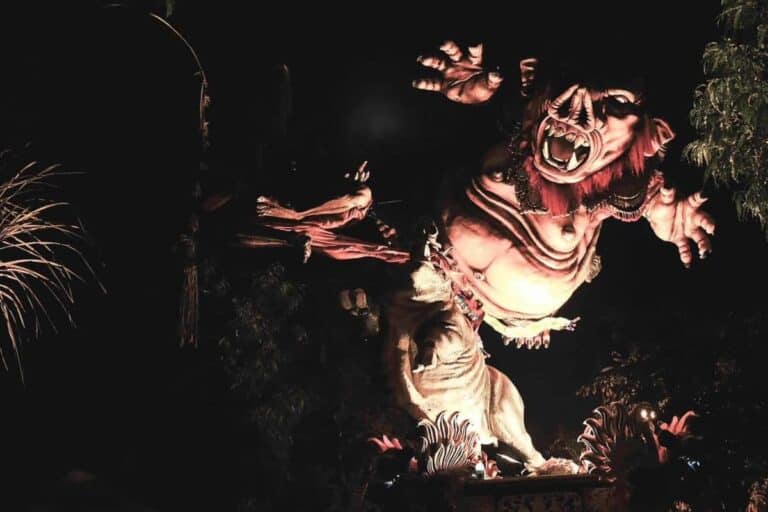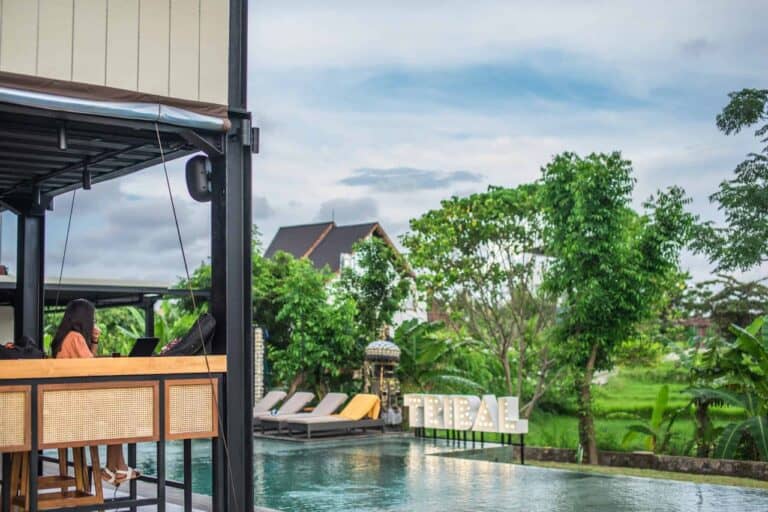Traditional gamelan music begins to play, crowds of pallbearers lift the funeral tower, and the procession starts. It is hectic, with crowds of people gathering to watch, accompanying the recently deceased person to the cremation site. It’s Ngaben, the Bali funeral tradition.
This sacred and lively ceremony is synonymous with Bali. The ritual is mandatory for Balinese Hindus if a family member dies, as well as being a different kind of tourist attraction for the island of the gods.
Balinese people believe Ngaben can purify the souls of family members who have passed away and deliver them to nirvana.
What is Ngaben in Bali?
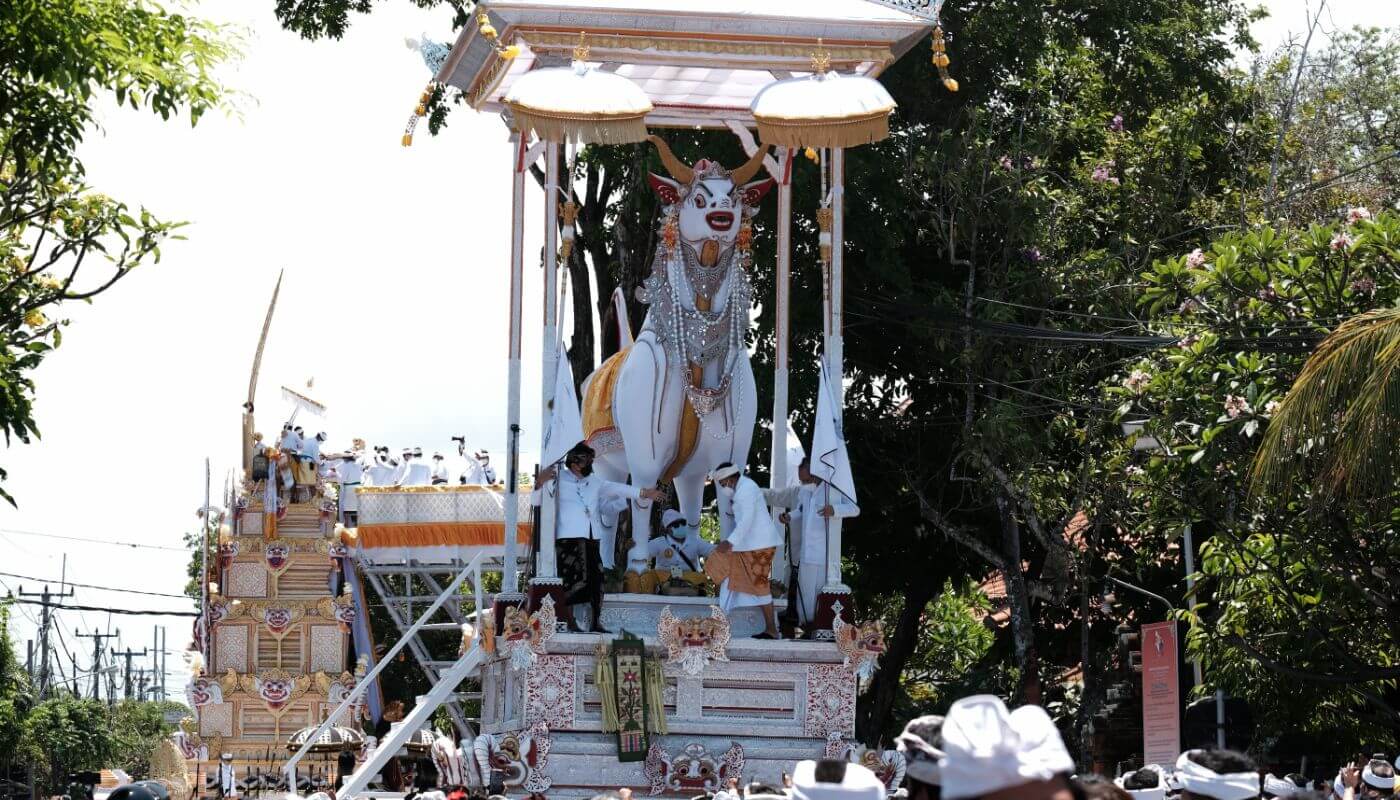
The word “ngaben” is also palebon, which comes from the word lebu, meaning land (ash). Some interpret Ngaben as ngabu, or to become ashes. Ngaben, by Balinese means, is a way to return humans to ashes, by cremating or burning.
Why is it Necessary?
According to the beliefs of Hindus in Bali, humans consist of a gross body (badan kasar), a subtle body (badan halus), and karma.
Badan kasar is formed from 5 elements called Panca Maha Bhuta, namely pertiwi (solid), apah (liquid), teja (heat), bayu (wind), and akasa (void). These five elements unite to form the human body and are moved by the atma (soul).
When a human dies, only badan kasar dies, while the atma does not.
Through Ngaben, the souls of the deceased are released from worldly bonds to heaven, and await reincarnation.
There are five types of Ngaben, namely:
- Ngaben Sawa Wedana
Sawa Wedana is a Ngaben ceremony that involves a body that is still intact, without being buried first. This ceremony is usually carried out within 3-7 days of the person passing away.
- Ngaben Asti Wedana
Asti Wedana involves the skeleton that has been buried. This ceremony includes excavating the grave and completing the Ngaben ceremony on the remaining bones. The procession is carried out according to local village traditions and rules.
- Swasta
Swasta is done without showing the body or skeleton. It is done for several reasons, such as death abroad, the body was not found, and so on. At this ceremony, the body is symbolized by painted sandalwood, and decorated with magical characters as the rough body of the atma of the person.
- Ngelungah
Ngelungah is a ceremony for children who have not yet lost their teeth.
- Warak Kruron
Warak Kruron is the ceremony performed for babies. Usually, this ceremony is carried out en-masse to reduce costs, without reducing the value of the ceremony.
Why is Ngaben Important for the Balinese?
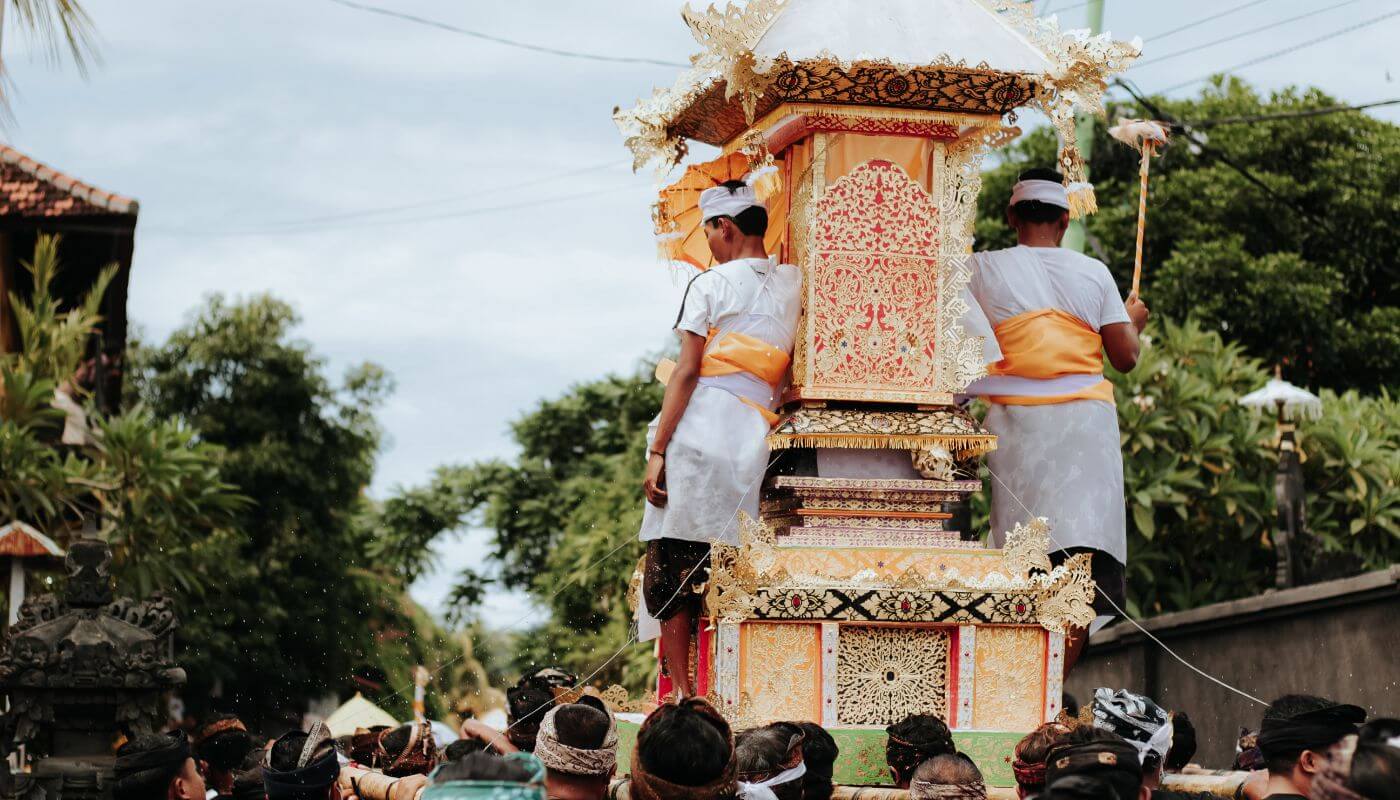
In Balinese Hinduism, Ngaben is a process of purifying the soul by burning it using fire so that it can return to the God. The burning fire is believed to be the incarnation of Lord Brahma. The fire will burn all the impurities attached to the body, and soul of the deceased.
Balinese people also believe that they should speed up the Ngaben procession. When the Ngaben is delayed too long after death, the soul will wander and become a Bhuta Cuwil – one that interferes with human life. It also happens when a deceased person is buried without a proper ceremony.
Ngaben has a number values for Balinese:
- By burning the corpse, then drifting the ashes into a river or the sea, they are releasing the Atma (soul) from the world, so that it can unite with God (Mokshatam Atmanam).
- Burning the corpse is a series of ceremonies to return all the elements of the Panca Maha Bhuta (5 elements of the badan kasar builder) to their respective origins, so as not to hinder Atma’s journey to Sunia Loka.
- For the family, the ceremony is a symbol that they have been sincere, and willing to say goodbye to the deceased.
What Happens During Ngaben in Bali?
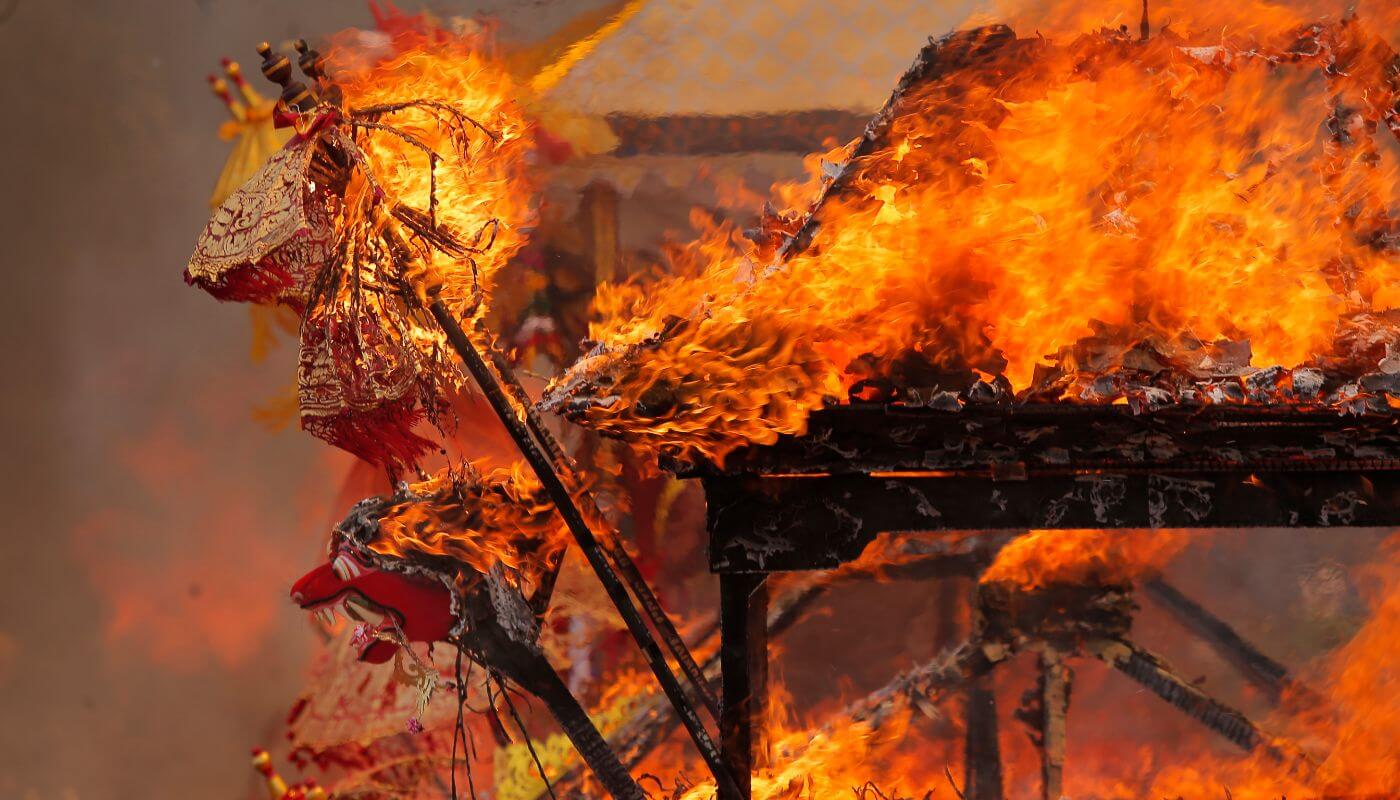
The Ngaben ceremony will begin with a formal procession.
The grieving family will bring a photo of the deceased, or the body to be burned.
The sound of Balinese gamelan accompanies the crowds to the Ngaben location.
After the body is burned, the ashes are put into a coconut to be thrown into the sacred sea, or river. It looks simple in text, but takes a very long time in reality.
Is Ngaben Expensive?
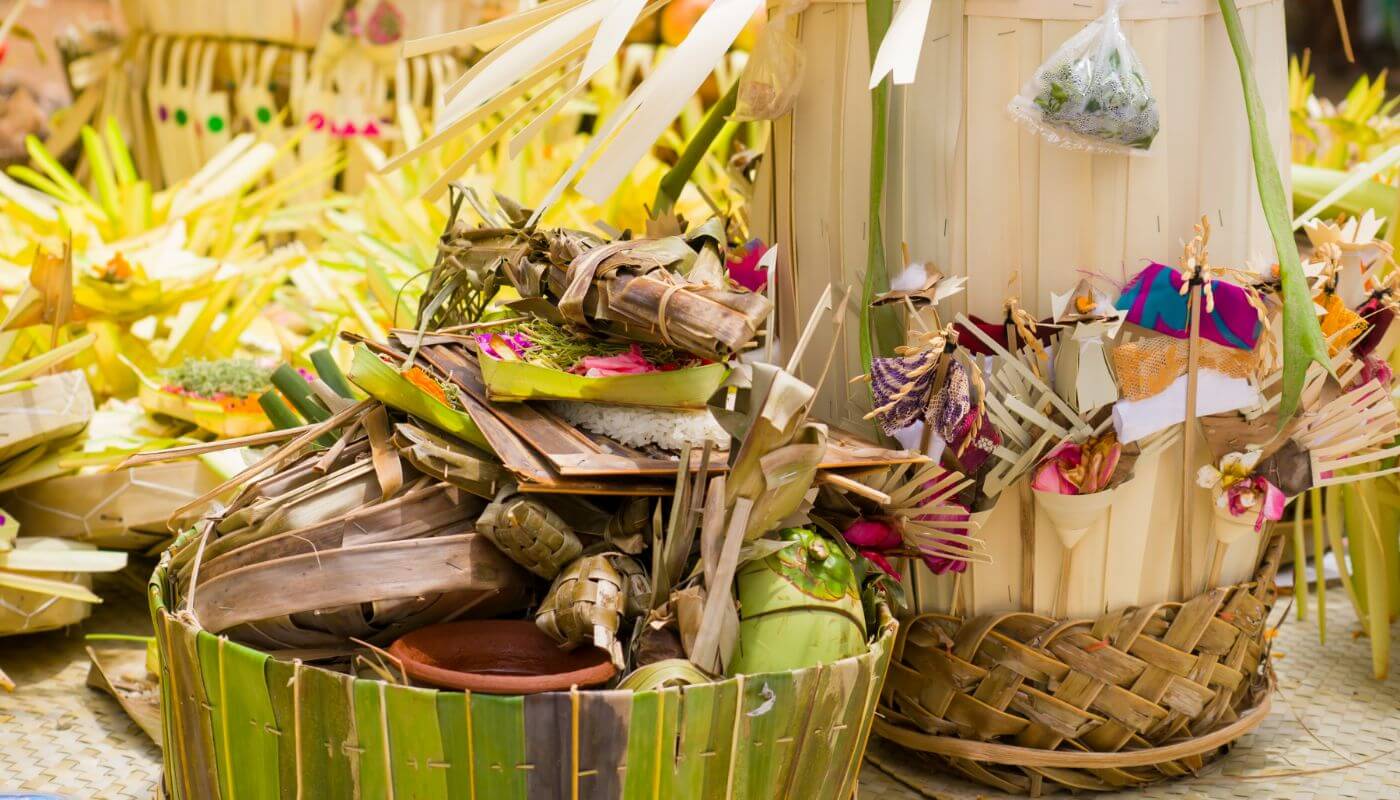
The Ngaben process is not simply about burning the body. It is a fairly long series of events, from the beginning of preparation to post-cremation.
Seeing so many people involved, ceremonies being held, offerings given, and so on, you might wonder if this ceremony costs a lot – it does.
A simple Ngaben can cost around IDR 20 million, a complete ritual will cost from IDR 70 to IDR 100 million.
It’s no wonder some families postpone the Ngaben ceremony, or wait until a collective ceremony is held. With a mass Ngaben ceremony, many families can share the cost of the ritual cremation.
Where Can You See a Ngaben Ceremony in Bali?
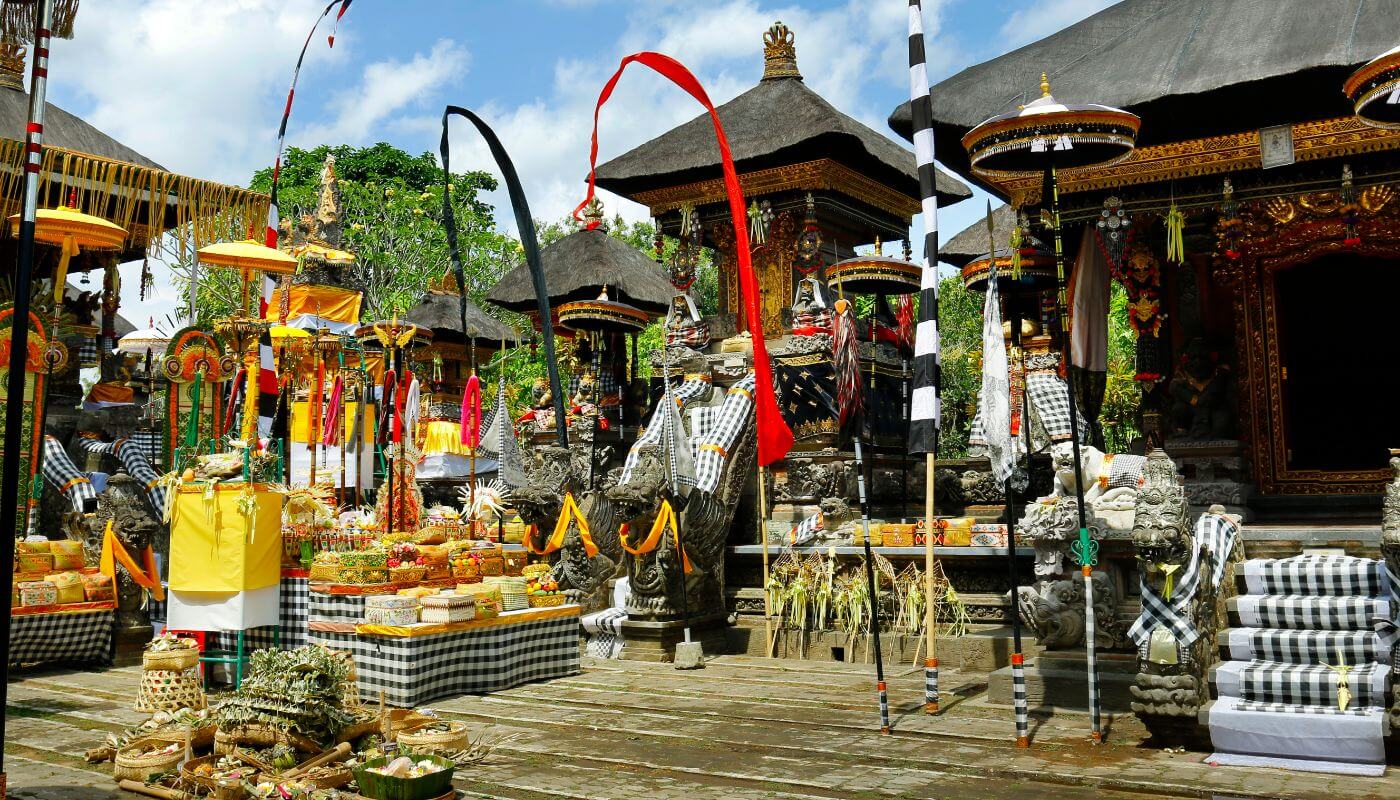
There is no specific schedule for Ngaben, tourists can see the ceremony anytime.
Maybe you will accidentally witness one while casually walking around. But, one not to miss is the mass Ngaben ceremonies for local villages. These can take place every 5-10 years in some cases!
One of the most popular spots to witness Ngaben is Ubud, the heart of culture in Bali. This is where any Royal Ngaben Cremations will be held – the biggest cremation event in Bali.
Tourists and photographers start to visit Ubud during the preparation period, which can last one to two months. This is the time used to make a bade or funeral tower to be paraded.
What to do During Ngaben?
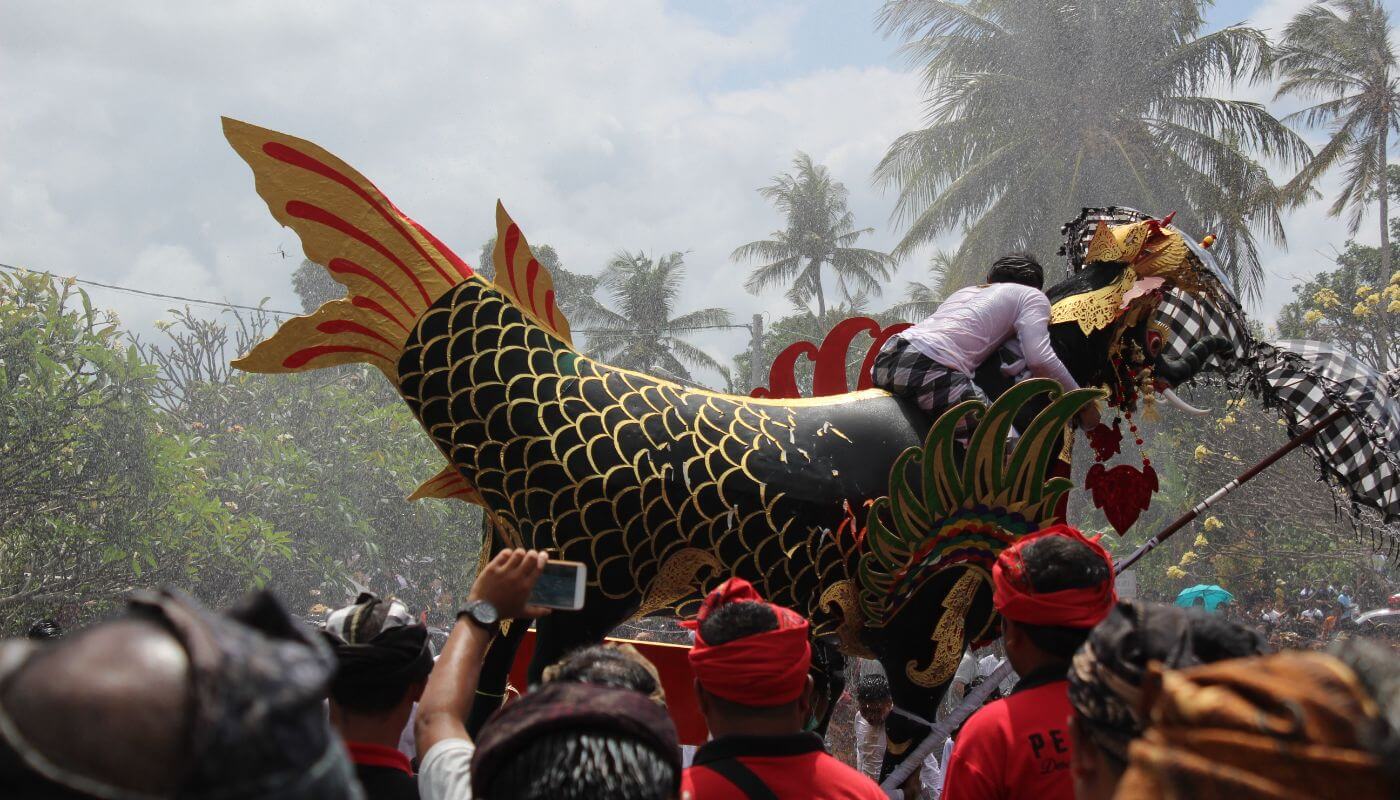
First of all, and the most important, is to show respect. Ngaben is a sacred ceremony where families let go of a loved one.
Take advantage of the unique event to take pictures, get in among locals and learn something about Bali that not many see.
If you want to experience how Balinese people do Ngaben, here are some useful tips:
- Dress like a local – You can use traditional Balinese clothes (kebaya) to be more blended with the crowds.
- Bring your camera – Taking pictures and videos are encouraged during Ngaben. But, please show respect for the families and the deceased.
- Prepare yourself – Ngaben processions are quite long, it can be tiring. Make sure you have plenty of water and a full meal before joining!
Having the opportunity to join such an incredible ceremony doesn’t come around all the time. Be sure you immerse yourself in the experience.


